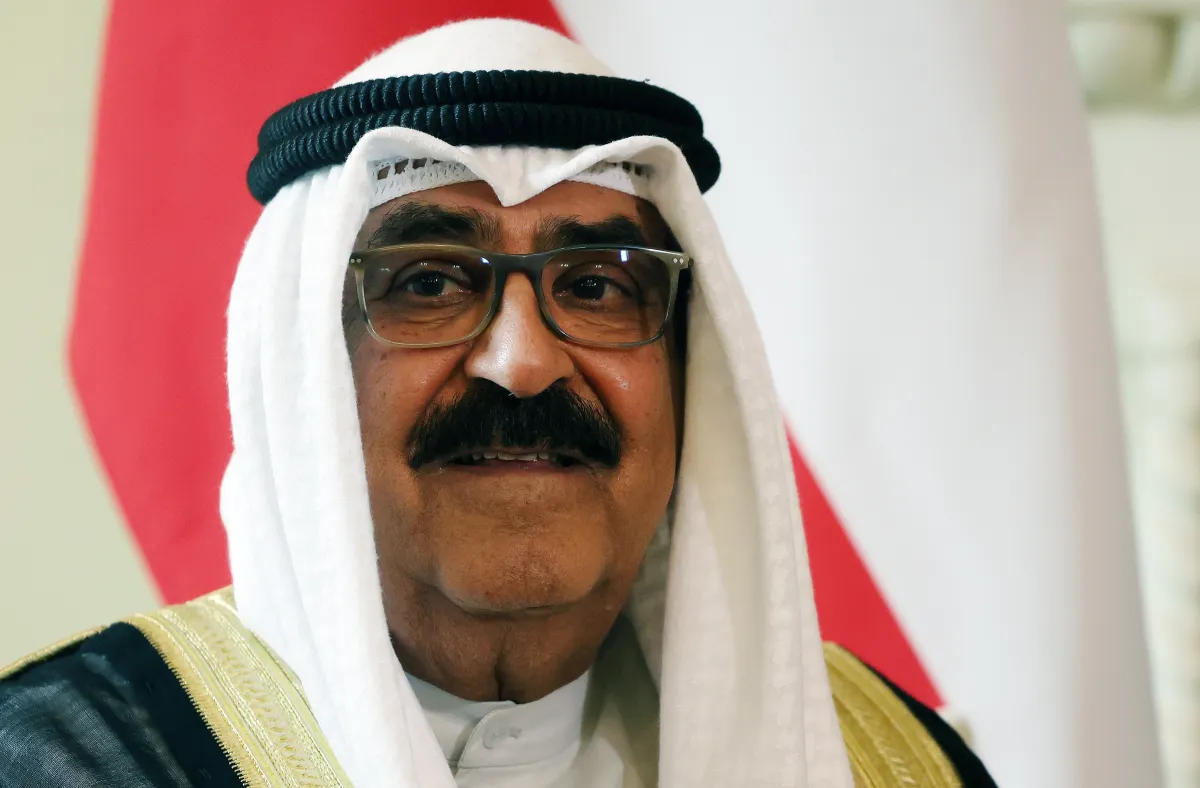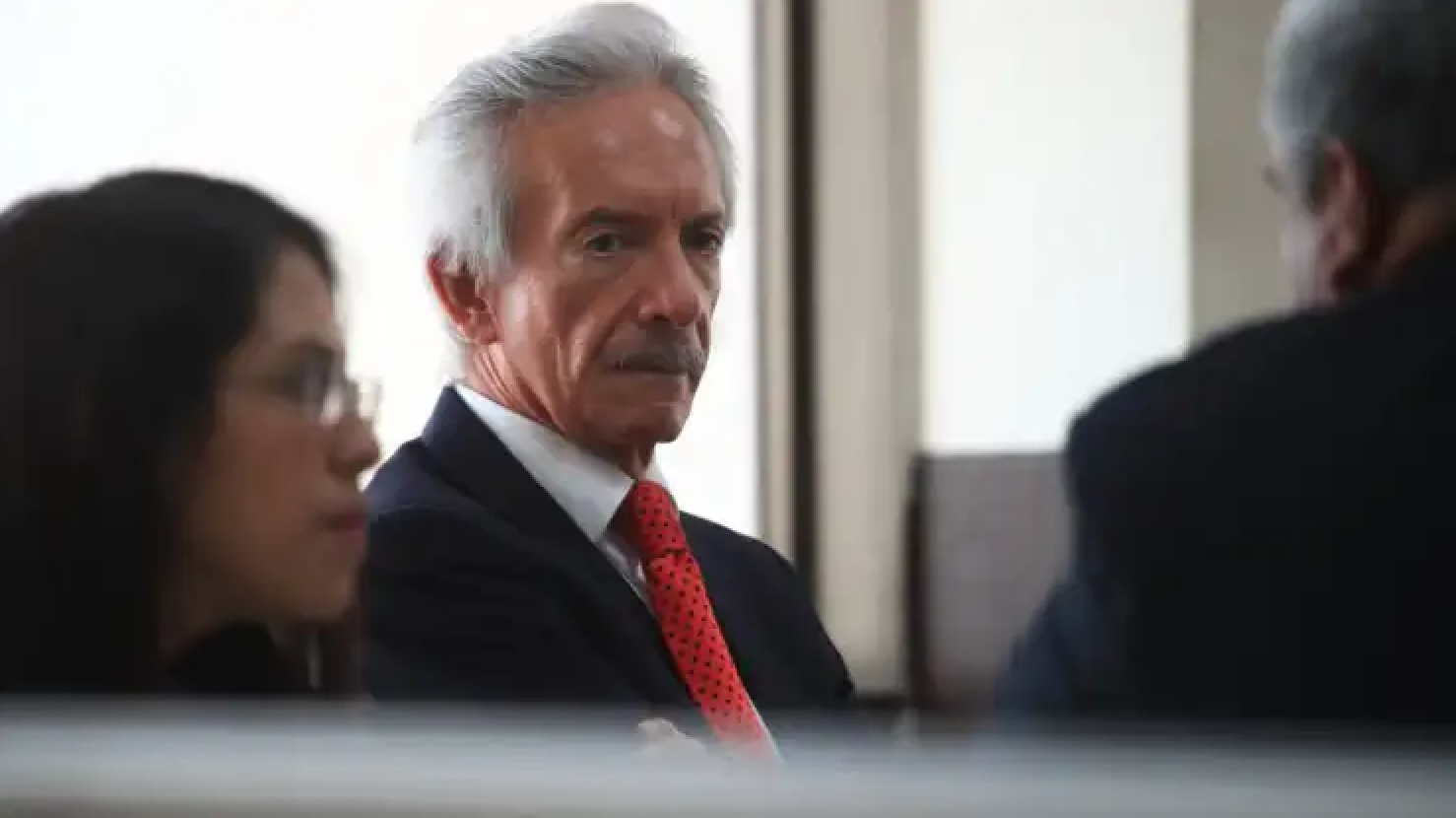International
The Emir of Kuwait dissolves Parliament and suspends some clauses of the Constitution

The Emir of Kuwait, Mishal al Ahmad al Sabah, announced the dissolution of his country’s Parliament, the only one democratically elected in an Arab monarchy of the Persian Gulf, and the suspension of “some clauses of the Constitution” to – he assured – “save the higher interests of the country.”
In a televised speech, the eight-year-old Emir of Kuwait said that he issued a decree with “this difficult decision” that will be in force for “a period not exceeding four years,” during which the head of state himself and the prime minister “will assume the powers delegated to the National Assembly” or Parliament.
He attributed his decision to the “intromission” of “some” deputies in the powers of the head of government “and even of the emir,” in the context of the constant confrontation between the Executive and Legislative powers of the rich country of the Gulf.
“We do not allow democracy to be exploited to destroy the country,” Al Sabah warned in his speech, also reproduced by the official Kuwaiti news agency, KUNA.
“Some (deputies) even interfere in the powers of the emir and his election of his crown prince, forgetting that it is an explicit constitutional right,” of the head of state, he said.
He also denounced the “intromission” of “some” in the election of ministers for the formation of a Government of the country “forgetting, out of ignorance or deliberately, that electing the prime minister and ministers is a constitutional right of the head of state” in which “no one can interfere.”
The decision comes after the emir appointed a member of the ruling family, Sheikh Ahmad al Sabah, as prime minister, on April 15, and commissioned him to form a new Executive, the second cabinet since the monarch himself took power in December.
The previous Government, which lasted a few months, resigned after the parliamentary elections held on April 4.
Mishal al Sabah also decided on April 21 to transfer his powers “during his absence” to the then newly appointed prime minister, a measure that, he said, will remain in force until the emir, who took power on December 20, after the death of his stepbrother, Nawaf al Ahmed, appoints a crown prince.
Kuwait has historically been marked by severe disagreements and constant tensions between the Executive and Legislative powers, which in recent years has been largely dominated by Islamists.
That ongoing confrontation led the new emir to dissolve the chamber in February after implicitly accusing some parliamentarians of “violation of constitutional principles” by making “deliberate use of offensive and uncontrolled expressions.”
During the mandate of the previous emir (2020-2023), the country had to form seven governments due to the continuous confrontation between Parliament and the Executive, characterized by mutual accusations of corruption and nepotism.
“We faced unimaginable and unbearable difficulties, and some people strove to close all the doors through which we tried to enter to overcome our bitter reality, which left us no room for hesitation or delays in making the difficult decision to save this country and ensure its higher interests,” the emir added in the speech.
Kuwait is the only Arab country in the Persian Gulf that has a democratically elected Parliament, which exercises control over the Government. The other states in the area, such as Saudi Arabia, Qatar and the United Arab Emirates, have advisory councils without legislative powers or control over the Government.
International
Deportation flight lands in Venezuela; government denies criminal gang links

A flight carrying 175 Venezuelan migrants deported from the United States arrived in Caracas on Sunday. This marks the third group to return since repatriation flights resumed a week ago, and among them is an alleged member of a criminal organization, according to Venezuelan authorities.
Unlike previous flights operated by the Venezuelan state airline Conviasa, this time, an aircraft from the U.S. airline Eastern landed at Maiquetía Airport, on the outskirts of Caracas, shortly after 2:00 p.m. with the deportees.
Interior Minister Diosdado Cabello, who welcomed the returnees at the airport, stated that the 175 repatriated individuals were coming back “after being subjected, like all Venezuelans, to persecution” and dismissed claims that they belonged to the criminal organization El Tren de Aragua.
However, Cabello confirmed that “for the first time in these flights we have been carrying out, someone of significance wanted by Venezuelan justice has arrived, and he is not from El Tren de Aragua.” Instead, he belongs to a gang operating in the state of Trujillo. The minister did not disclose the individual’s identity or provide details on where he would be taken.
International
Son of journalist José Rubén Zamora condemns father’s return to prison as “illegal”

The son of renowned journalist José Rubén Zamora Marroquín, José Carlos Zamora, has denounced as “illegal” the court order that sent his father back to a Guatemalan prison on March 3, after already spending 819 days behind barsover a highly irregular money laundering case.
“My father’s return to prison was based on an arbitrary and illegal ruling. It is also alarming that the judge who had granted him house arrest received threats,” José Carlos Zamora told EFE in an interview on Saturday.
The 67-year-old journalist was sent back to prison inside the Mariscal Zavala military barracks on March 3, when Judge Erick García upheld a Court of Appeals ruling that overturned the house arrest granted to him in October. Zamora had already spent 819 days in prison over an alleged money laundering case.
His son condemned the situation as “unacceptable”, stating that the judge handling the case “cannot do his job in accordance with the law due to threats against his life.”
International
Miyazaki’s style goes viral with AI but at what cost?

This week, you may have noticed that everything—from historical photos and classic movie scenes to internet memes and recent political moments—has been reimagined on social media as Studio Ghibli-style portraits. The trend quickly went viral thanks to ChatGPT and the latest update of OpenAI’s chatbot, released on Tuesday, March 25.
The newest addition to GPT-4o has allowed users to replicate the distinctive artistic style of the legendary Japanese filmmaker and Studio Ghibli co-founder Hayao Miyazaki (My Neighbor Totoro, Spirited Away). “Today is a great day on the internet,” one user declared while sharing popular memes in Ghibli format.
While the trend has captivated users worldwide, it has also highlighted ethical concerns about AI tools trained on copyrighted creative works—and what this means for the livelihoods of human artists.
Not that this concerns OpenAI, the company behind ChatGPT, which has actively encouraged the “Ghiblification”experiments. Its CEO, Sam Altman, even changed his profile picture on the social media platform X to a Ghibli-style portrait.
Miyazaki, now 84 years old, is known for his hand-drawn animation approach and whimsical storytelling. He has long expressed skepticism about AI’s role in animation. His past remarks on AI-generated animation have resurfaced and gone viral again, particularly when he once said he was “utterly disgusted” by an AI demonstration.
-

 International4 days ago
International4 days agoFederal court blocks Trump’s use of Enemy Alien Act for deportations
-

 Central America4 days ago
Central America4 days agoHonduran group in U.S. pushes for voter registration to prevent election fraud
-

 Central America4 days ago
Central America4 days agoKristi Noem in Latin America: Talks with Bukele on expulsions and security policies
-

 International4 days ago
International4 days agoEcuador oil spill worsens as containment dam collapses
-

 Central America3 days ago
Central America3 days agoNicaragua denounces Costa Rica’s position in SICA as aligned with foreign interests
-

 Central America3 days ago
Central America3 days agoNicaragua’s new judicial law consolidates power in Ortega and Murillo’s hands
-

 Central America3 days ago
Central America3 days agoPanama’s president declares Darién gap ‘closed’ amid sharp drop in migrant flow
-

 International3 days ago
International3 days agoMarco Rubio warns Venezuela against military action against Guyana
-

 International1 day ago
International1 day agoSon of journalist José Rubén Zamora condemns father’s return to prison as “illegal”
-

 International1 day ago
International1 day agoMiyazaki’s style goes viral with AI but at what cost?
-

 Central America1 hour ago
Central America1 hour agoPanama police clarifies that Interpol alert for Martinelli is still pending
-

 International1 hour ago
International1 hour agoDeportation flight lands in Venezuela; government denies criminal gang links
-
Central America2 days ago
Nicaragua revokes legal status of 10 more NGOs, bringing total to over 5,600















